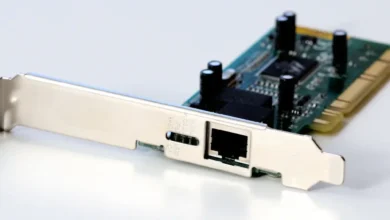Important Modern Advances in Science and Technology

Science and technology have seen immense growth and progress in recent decades. Researchers worldwide are making discoveries and developing innovative technologies across disciplines that are transforming how we live and work. This article explores some of the most important modern advances in science and technology that have the potential to benefit humanity.
Major Breakthroughs in Artificial Intelligence
Artificial intelligence (AI) refers to computer systems that can perform tasks that typically require human intelligence. AI is powering many recent technological breakthroughs and has wide-ranging real-world applications.
Machine Learning and Deep Learning
Machine learning and deep learning have enabled AI systems to learn and improve at tasks without explicit programming. From image and speech recognition to generating text and making predictions, these approaches underpin many AI achievements today. Industries utilizing machine learning range from healthcare to transportation.
Natural Language Processing
Enabling computers to understand human language is the focus of natural language processing (NLP). Smart assistants like Siri and Alexa leverage NLP to recognize speech, translate languages and respond appropriately. NLP has also supercharged areas like sentiment analysis and text summarization.
Computer Vision
Computer vision focuses on enabling computers to identify, analyze and understand digital images and videos. It powers facial recognition, medical imaging analysis and self-driving car visual perception. Computer vision is critical for augmented reality (AR) and mixed reality technologies as well.
Cutting-Edge Advancements in Healthcare
Modern healthcare has been revolutionized by recent scientific and technological innovations for improved diagnosis, treatments and disease prevention.
Gene Editing
Gene editing tools like CRISPR allow precise modification of DNA to remove, add or alter genetic code. This technology is being researched to potentially correct defects and treat diseases including cancer, HIV and inherited disorders.
Telemedicine and mHealth Apps
Telemedicine and mobile health apps have made healthcare more accessible remotely. Doctors can now conduct video consultations, while health apps help users track fitness, medication reminders and more. Technologies like 5G networks will further power telemedicine services.
AI-Assisted Diagnosis
AI imaging analysis helps doctors diagnose conditions more accurately from medical scans. Other AI systems can predict outbreaks faster or determine optimal treatments for patients. Over time, AI could assist in early diagnosis and personalized medicine recommendations.
Quantum, 5G and Cloud Computing Revolutions
Modern computing has advanced enormously based on innovations in quantum computing, 5G connectivity and cloud platforms.
Practical Quantum Computers
Quantum computing leverages quantum physics for exponential speedups over classical systems for specialized tasks like chemical simulations. Leading tech giants now offer quantum computing over the cloud, bringing us closer to practically utilizing quantum devices.
High-Speed 5G Networks
5G networks offer ultra-fast broadband cellular communication capabilities. 5G enables innovations like high-def video conferencing, seamless cloud access, connected self-driving vehicles, real-time data analytics and the Internet of Things.
Cloud Computing Infrastructure
Cloud platforms allow accessing shared IT resources like servers, databases, software and analytics tools over the internet. Companies like Amazon AWS and Microsoft Azure now offer cloud-based AI, blockchain and quantum computing too. The scalability of cloud has been pivotal for modern businesses.
Sustainability and Clean Energy Solutions
Concerns over climate change have highlighted scientific research and tech innovation focused on sustainability and renewable energy.
Economical Solar Photovoltaics
Solar PV panels are more efficient and cheaper to manufacture than ever before. Combined with better energy storage solutions, solar electricity aims to minimize reliance on fossil fuels. Cost-competitive solar helps make clean power reachable for more homes and businesses.
Advances in Wind Turbines
Modern wind turbines based on eco-friendly bladeless designs generate more green energy. Sophisticated sensors and machine learning also enable detecting turbine faults early and optimizing power generation. Offshore wind farms and floating turbines specifically boost generation.
Biofuels and Bioplastics
Biofuels utilize agricultural crops as renewable alternatives for vehicles and jets traditionally relying on gasoline/diesel. Bioplastics from plant-based sources also reduce dependence on chemical-intensive plastics derived from oil. Such technologies help develop greener manufacturing ecosystems.
Carbon Capture and Storage
Carbon capture stops CO2 emissions from factories and power plants escaping into the air. The CO2 can then be recycled for industrial use or stored underground/underwater. This greenhouse gas removal mechanism is important for climate change mitigation.
Extended Reality and Smart Device Revolutions
Immersive extended reality and intelligent device ecosystems are also emerging areas seeing rapid adoption and progress.
Augmented and Virtual Reality
Augmented reality (AR) overlays digital information onto the physical real-world. Virtual reality (VR) creates lifelike simulated environments for training, gaming and remote collaboration. As headsets improve and costs drop, applications will grow for education, workplace training, tourism, healthcare and more.
Expansion of Internet of Things
Internet of Things (IoT) refers to the vast network of internet-connected smart devices embedded with sensors to collect and share data. IoT apps span smart homes, wearables, autonomous vehicles, supply chain tracking and smart cities. 5G enables massive IoT device density.
Proliferation of Smartphones
Smartphones have become the control hub for modern life from finances and navigation to entertainment and fitness. Foldable displays, high refresh rate screens, multi-lens cameras and powerful 5G-enabled chipsets will further enhance smart devices. Over 6 billion people already own one worldwide.
The Path Forward
The scientific discoveries and technological advancements covered here highlight the incredible progress made to date. However, more innovations are still required to develop solutions for climate change, future pandemics, sustainable development and space exploration goals in the decades ahead.
Ongoing research across domains from neuroscience to nanotechnology will also bring new opportunities. Upskilling to stay updated with the latest advancements will be key to success. Overall, the spirit of collective human inquiry will remain the driving force to develop ideas that advance civilization for global good.
Frequently Asked Questions
Q: What are some examples of modern advances in science and technology?
A: Prominent examples include artificial intelligence, healthcare improvements through gene editing and telemedicine, next-gen computing via quantum, 5G and cloud, as well as sustainability focused solutions around renewables and carbon capture. Augmented reality, Internet of Things, smartphones and more are also seeing significant modern progress.
Q: Which scientific and technological advances are expected to have the biggest impact on the future?
A: AI is expected to transform every industry. Sustainability tech and cleaner energy systems will be crucial for environmental welfare. Extended reality and smart devices will disrupt how we live and work. Quantum, 5G and cloud will enable scientific discovery and innovation across domains.
Q: What factors led to such rapid advances in modern science and technology?
A: Increased R&D investments, global research collaborations, faster experiment cycles via big data and simulations, incentives for meeting sustainability goals as well as the accelerated pace of knowledge sharing and tech upgrade cycles have fueled rapid progress.





